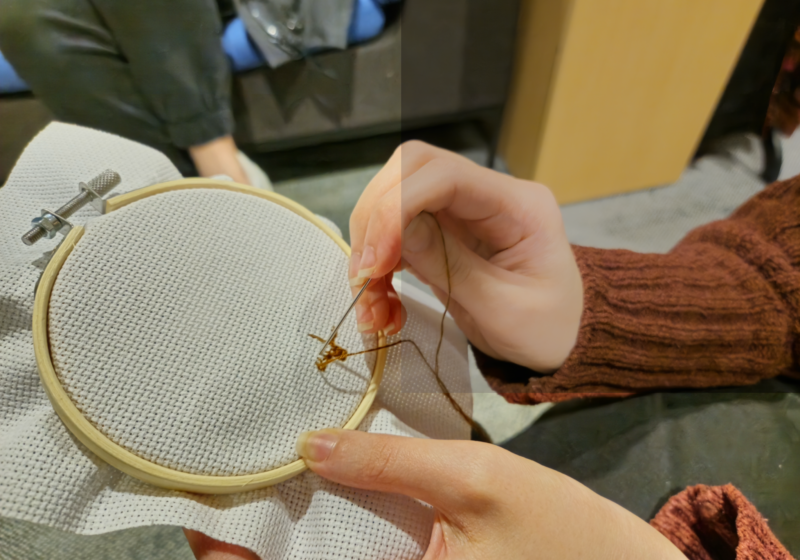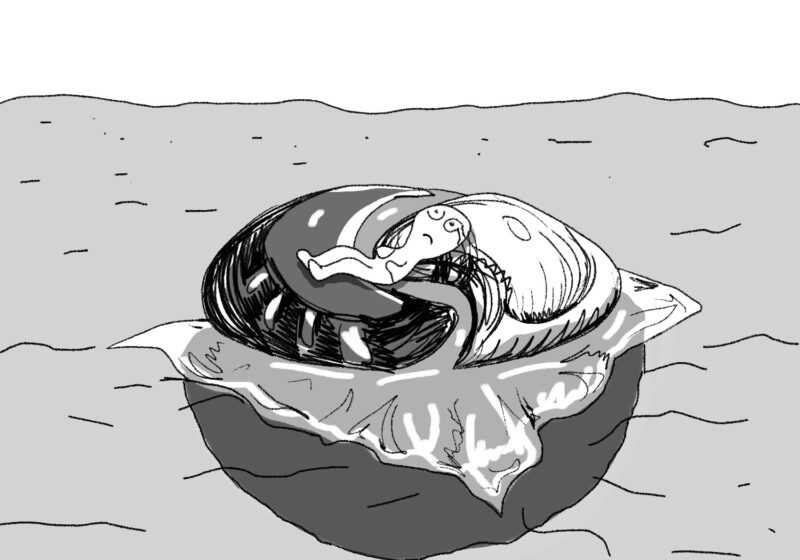I love my cat, Toulouse, very much.
We share my room and he has lots of toys to play with and kitty forts to climb. When the lighting is right, you betcha I’m taking at least 30 pictures of him. On slow mornings, I let him watch videos made for cats where he can watch virtual mice run around.
But he started peeing incessantly on my bed, so I had to put my foot down.
The vet said his problem was behavioral. Sometime in the past week, my cat got pissed and my mattress got pissed on. The vet told me to make a statement.
So now his food, water, and litter box are in the basement. He’s only allowed in my room with a chaperone. The first night the rules were enforced, he slept in the living room. He meowed all night, but my housemates and I suffered through it until he went to sleep.
And since that first night, Toulouse hasn’t peed anywhere but his litter box.
Actions speak louder than words—particularly when there’s a language barrier because you are communicating with a cat. I first learned this cliché when I read the “Samantha” series by the American Girl company (highly recommend) but it’s been reinforced over my years at UR especially.
Writing professors teach “show, not tell.” Fellow dancers offer, “Really emote!” And friends complain that their significant other apologized, but never changed. Actions speak louder than words, because as much as I hate to admit it, words don’t have to mean anything if you don’t want them to. Lying is easy.
Toulouse has been so polite it’s startling. It’s pleasant, but shocking, to have a feral cat I adopted acting better than most of the adults I know. What I’ve learned, with people as well as with cats, is that actions are what you should demand from yourself the most and expect from others the least.
What’s confusing in our political time, though, is that word choice has become an action in itself. Words are coded and loaded with underlying meanings until they’re too heavy to use in casual conversation. There now exists a spectrum of how seriously words are taken, and it runs all the way from “trigger warnings” to “fake news.”
It’s difficult to decide what terminology suits what you can say with who and where. Our generation throws a lot of slang around only to demand that other words be chosen with a pinpoint precision. Words today are both malleable as silly putty and hard as bricks. Some things are easy to let slip, some have a greater impact than expected.
An actual queen of faux paus, I’ve had my share of saying the wrong thing at the wrong time. I always try to follow it with that heart-pounding moment and all the dreaded eye contact and the heaviest, hardest words to say, “Sorry. I was wrong.”
But sometimes I don’t, because it’s easier to not say anything. But I regret the times I’ve failed to properly apologize more than the times I’ve mistakenly said the wrong thing. One of those was an accident, the other was filled with intent. And no, ignorance is not synonymous with innocence. But staying silent is a decision and an action, the two most defining and damning traits of character.
The vet told me that whatever conflict happened between Toulouse and I would still be present. Within his recent politeness is an underlying agenda to pee on my bed, even if he acts otherwise. But the important thing is that my cat stopped ruining my sheets every time I left the house.
And as much as I hate to admit it, it’s the same with words. If words are so unimportant, if they actually mean so little—just apologize. If words can never hurt us, would you mind throwing a few of those our way, along with all the sticks and stones? The action of apologizing—that would mean so much. If you don’t feel like regulating your language, pair it with the verbal cushion explaining that. Explain that you have decided words are for adornment and actions are for defining you as a person. If you don’t want to define yourself via your words, you have to do so with your actions. I’ll change my perception of you accordingly.
My cat can’t verbally apologize for what he’s done, but as a person you can. Let’s say it’s not an option, because I understand, apologizing is hard. Some words that could have originally meant nothing still hurt. Just like some words that you don’t actually mean are really hard to say. The words “I’m sorry” are an admission of fault, and maybe you don’t want that.
To avoid this maze of words, intent, action, and character, though, there is one simple solution: Stop peeing everywhere.



